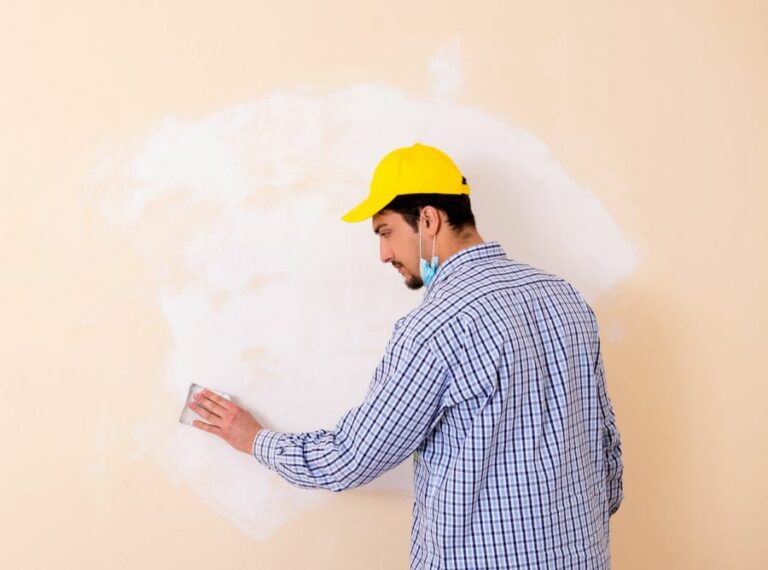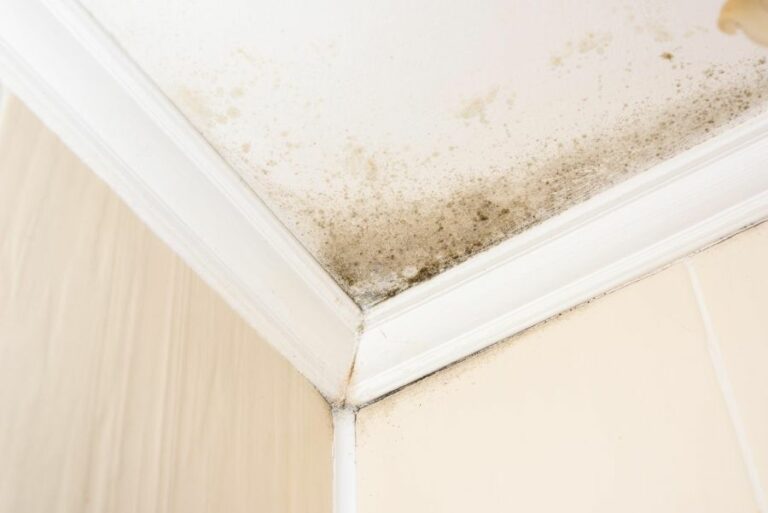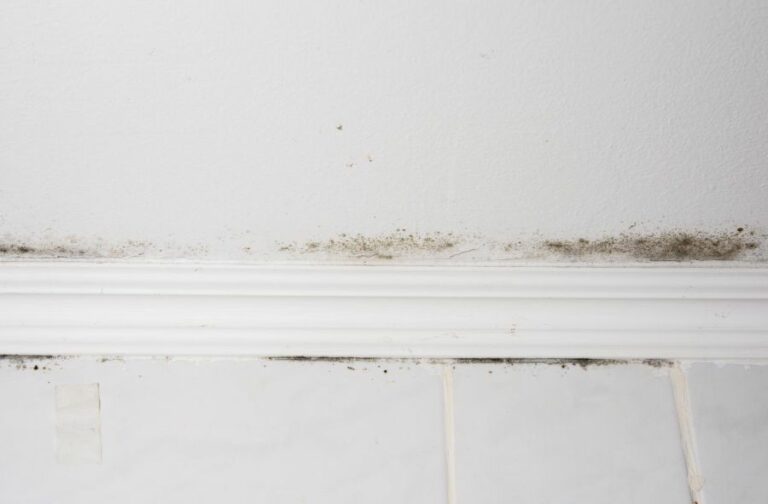Surface Cleaning With Wire Brushes, 25 Things You Should Know
Surface cleaning with wire brushes is essential for those looking to maintain and restore various materials and surfaces. Understanding the right techniques, tools, and safety measures is crucial to effectively and efficiently achieve the desired results. We have the insights and tips you need to help you easily navigate this process, whether you’re a seasoned professional or a DIY enthusiast.
Surface cleaning with wire brushes:
Wire or scratch brushes are essential for various surface cleaning tasks in industries like construction and metalworking. They come in different types, such as steel, brass, stainless steel, and nylon wire brushes, suitable for rust removal, paint stripping, deburring, and maintaining surface textures. Wire brushes can be handheld or attached to power tools for efficient cleaning. Proper selection, usage, and safety precautions ensure effective surface cleaning and prolong brush life.

Unlock the secrets of efficient surface cleaning by using wire brushes! Discover how to choose the right brush, techniques for different surfaces, and expert tips for optimal results. Read on and give your cleaning projects a professional touch!
Contents
- 1 Effective Surface Cleaning Using Wire Brushes
- 2 Various Cleaning Applications of Wire Brushes
- 3 Wire Brush: An Effective Dirt Removal Tool
- 4 Wire Brushes in Automotive Detailing: Purpose & Uses
- 5 The Safety & Suitability of Wire Brush Usage
Effective Surface Cleaning Using Wire Brushes
• Introduction to Wire Brushes
Wire brushes, also known as scratch brushes, are tools that consist of bristles made from steel, brass, or other metal wires. They are an essential tool in various industries, such as construction, metalworking, woodworking, automotive maintenance, and many others.
They can be used for a wide range of surface cleaning tasks, including rust removal, paint stripping, deburring, and maintaining surface textures.
• Types of Wire Brushes and Their Applications
Wire brushes come in various shapes, sizes, and materials, offering a wide range of possibilities. Below are some of the most commonly used wire brushes.
– Steel Wire Brushes
Steel wire brushes are extremely versatile, thanks to their durability and abrasiveness. They are typically used for removing rust, scale, paint, and heavy debris from metal surfaces. Additionally, they can be used for roughening surfaces for improved adhesion of paints, coatings, or other substances.
– Brass Wire Brushes
Brass wire brushes are softer and non-sparking compared to their steel counterparts. Their primary applications include cleaning softer metals such as brass, copper, and aluminum without scratching or damaging the surface. They are also used in cleaning non-conductive surfaces in electrical components.
– Stainless Steel Wire Brushes
Stainless steel wire brushes combine the durability of steel with the added benefit of resistance to rust and corrosion. They are ideal for cleaning stainless steel and other corrosion-resistant materials or environments where contamination must be avoided.
– Nylon Wire Brushes
For less aggressive surface cleaning, nylon wire brushes are an effective choice. They can be used for light-duty tasks such as cleaning upholstery, scrubbing pots and pans, and removing dirt and grime from interior and exterior surfaces.
• Brush Configurations and Attachments
Wire brushes come in various configurations and attachments to suit different surface cleaning applications.
– Handheld Wire Brushes
Handheld wire brushes are the most basic and versatile brush configuration. They consist of a handle and a metal bristle head. They are commonly used for rust removal, scrubbing surfaces, and other small-scale projects.
– Wheel Brushes
Wheel brushes resemble a disc or wheel with wire bristles radiating from a central hub. They are designed to be mounted on drills, angle grinders, or other power tools for efficient and effective surface cleaning.
They are ideal for larger surfaces or harder-to-reach areas. Examples of their applications include removing rust from metal fences, stripping paint from wooden surfaces, or cleaning welds.
– Cup Brushes
Cup brushes are similar to wheel brushes but with a cup-shaped base, offering more stability and control. These brushes are suitable for cleaning grills, pipes, corners, and other confined spaces and deburring edges or seams.
– End Brushes
End brushes, or pencil brushes, consist of a small, narrow head of wire bristles. They are designed for precision cleaning and polishing tasks, such as removing burrs from small parts, cleaning threads or fine grooves, and toothbrush-like cleaning in hard-to-reach areas.
• Tips and Recommendations for Using Wire Brushes
To ensure effective surface cleaning and safe use of wire brushes, follow these recommendations:
- Choose the appropriate wire brush type and size for the task at hand. Consider the material, shape, and scale of the surface to be cleaned.
- When using power tools, always select the correct attachment and set the right speed to avoid causing damage to the surface or the brush itself.
- Wear appropriate personal protective equipment (PPE) such as safety glasses, gloves, and hearing protection when using wire brushes, particularly with power tools.
- Always perform a test on a small, inconspicuous area to ensure the wire brush will not damage the surface.
- To extend the life of wire brushes, clean and store them properly. Remove debris from the bristles, and hang the brushes in a dry, well-ventilated area.
• Conclusion
Wire brushes are indispensable tools for a wide range of surface cleaning applications, from rust and paint removal to deburring and polishing.
By understanding the types of wire brushes and their uses and following safety and maintenance recommendations, you can achieve optimal results in your surface cleaning tasks.
Various Cleaning Applications of Wire Brushes
Wire brushes are versatile and practical tools that have numerous applications in cleaning and removing rust, paint, and other contaminants from various surfaces. Their bristles, typically made of steel or brass, offer a considerable advantage over other brushes that have softer bristles.
The following are examples of common materials and surfaces that can be cleaned effectively using a wire brush.
• Metals: Removing Rust and Paint
When working with metal surfaces, removing rust and paint can become an essential task. A wire brush is an ideal tool to carry out this purpose. For example, if you’re preparing a metal surface for painting or refinishing, using a wire brush can help ensure the area is spotless and ready for a new coat of paint.
Additionally, removing rust from metal surfaces can prolong the life of the metal and prevent it from deteriorating over time.
– Recommended tool: Brass wire brush
A brass wire brush is softer than a steel wire brush and less likely to scratch the metal surface when cleaning rust or paint. In case the surface is more delicate, a brass wire brush is the preferred choice.
• Stainless Steel: Scrubbing and Polishing
Stainless steel surfaces can significantly benefit from wire brush cleaning. When scrubbed with a wire brush, stainless steel can maintain its shine and remain free from dirt, grime, and stains.
This is particularly useful in kitchens and outdoor cooking areas, where stainless steel equipment is prone to becoming dirty.
– Recommended tool: Stainless steel wire brush
A stainless steel wire brush is ideal for cleaning stainless steel surfaces without scratching or damaging the surface. The similarities in materials allow for a gentle and effective method of removing contaminants and maintaining the appearance of the stainless steel.
• Grills and Barbecues: Removing Grease and Grime
Grills and barbecues are prone to grease and grime build-up from frequent cooking. Wire brushes are commonly used to scrub and clean these surfaces, effectively removing any burnt food residues and built-up grease.
Regular cleaning with a wire brush can prolong the life of a grill’s cooking surface and improve its performance.
– Recommended tool: Steel wire brush
When cleaning hard, durable surfaces like grills and barbecues, a steel wire brush can be an excellent choice. The sturdier steel bristles can efficiently remove stubborn grime and grease without damaging the metal surface.
• Masonry: Cleaning and Restoration
Wire brushes are also used to clean and restore masonry surfaces such as concrete, brick, and stonework. They can effectively remove dirt, moss, and other build-ups that accumulate on these surfaces over time.
Cleaning masonry with a wire brush can restore its original appearance and maintain its structural integrity.
– Recommended tool: Soft to medium bristle wire brush
When working with soft and porous masonry materials, it’s essential to use a wire brush with softer or medium bristles to prevent surface damage. A wire brush with the right level of stiffness can provide effective cleaning without causing detrimental effects.
• Wood: Preparing for Painting or Staining
When preparing wooden surfaces for painting or staining, a wire brush can be highly advantageous in removing old paint, dirt, and imperfections from the wood surface.
The bristles can reach into crevices, knots, and other irregularities in the wood, ensuring a clean, smooth surface for a new coat of paint or stain to adhere to.
– Recommended tool: Medium to stiff bristle wire brush
For most wooden surfaces, a wire brush with medium to stiff bristles will deliver the best results. The stiffer bristles can dislodge old paint and dirt effectively without excessively damaging the wood.
Of course, it’s essential to exercise care and choose a brush with an appropriate level of stiffness depending on the specific wood surface.
• Safety Considerations and Best Practices
When using a wire brush to clean any surface, it’s crucial to take safety precautions and follow best practices to ensure maximum efficiency and minimal damage to the material being cleaned.
Always wear appropriate personal protective equipment, such as gloves and safety goggles, to prevent any injuries from flying debris and contact with the metal bristles of the brush.
Additionally, it’s essential to use the correct type of wire brush for each specific surface and task, as mentioned in the recommendations above. Lastly, always test the wire brush on a small, inconspicuous area before proceeding with the entire surface to minimize any potential damage.
In conclusion, wire brushes are highly versatile, practical tools that can clean various surfaces effectively, ranging from metals and stainless steel to masonry and wood.
By utilizing the correct wire brush type and following safety best practices, you can efficiently tackle cleaning tasks and prolong the lifespan of the material you’re working with.
Item | Description |
|---|---|
Grill grates | Cleaning cooked-on food and grease from your BBQ grill grates |
Rust on metal surfaces | Removing rust from metal surfaces such as tools, bike parts, or metal furniture |
Paint on metal surfaces | Removing peeling or chipping paint from metal surfaces in preparation for repainting |
Masonry and concrete | Cleaning dirt, mold, and stains from masonry and concrete surfaces like patios and walls |
Automotive parts | Cleaning engine parts, brakes, and other components during automotive maintenance |
Pipes and plumbing fixtures | Removing mineral deposits, rust, and other buildup from pipes and plumbing fixtures |
Outdoor furniture | Cleaning dirt, stains, and rust from metal or plastic outdoor furniture |
Wire Brush: An Effective Dirt Removal Tool
When it comes to cleanliness and tidying up surfaces, wire brushes play a vital role in eliminating dirt, grime, loose paint, and rust. They come in various sizes and forms, which include handheld brushes and brushes that can be attached to power tools.
• Different Types of Wire Brushes
There are several types of wire brushes, each designed for specific tasks and materials. Here are some common types of wire brushes:
– Handheld Wire Brushes
These brushes come with a handle for manually scrubbing surfaces. Handheld wire brushes are ideal for small-scale, less intensive cleaning tasks. There are different types of handheld wire brushes, such as:
- Brass Wire Brushes: Ideal for cleaning non-ferrous metal surfaces like brass, copper, and aluminum, as they cause less damage to the material.
- Steel Wire Brushes: Suitable for heavy-duty cleaning tasks on ferrous metals like iron and steel, as well as stone and brick.
- Nylon Wire Brushes: Ideal for cleaning soft materials like wood and plastic without causing scratches or damage.
– Power Tool Wire Brushes
For more intensive cleaning tasks, a wire brush can be attached to a power tool like a drill or angle grinder. This helps speed up the cleaning process, especially when dealing with large or heavily soiled surfaces. Power tool wire brushes come in various shapes, including:
- Cup Brushes: Best for cleaning flat surfaces and edges.
- Wheel Brushes: Suitable for cleaning corners, curves, and grooves.
- End Brushes: Ideal for precision cleaning in hard-to-reach areas.
• How Effective are Wire Brushes in Removing Dirt?
Wire brushes are highly effective when it comes to removing dirt from various surfaces. Here are some benefits of using wire brushes for cleaning tasks:
– Versatility
Wire brushes can be used on multiple surfaces, from metal to wood and brick, depending on the type of wire used. Choosing the appropriate wire brush ensures effective dirt removal without causing harm to the material.
– Durability
Wire brushes are durable and can withstand extensive use, especially when they are made from high-quality materials like tempered steel or brass.
– Comprehensive Cleaning
The bristles of wire brushes penetrate deep into cracks, crevices, and hard-to-reach areas, effectively removing dirt, grime, rust, and loose paint.
• Recommendations for Effective Dirt Removal with Wire Brushes
Here are some recommendations to ensure you get the best results when using wire brushes for dirt removal:
- Always choose the appropriate type of wire brush based on the material and cleaning task. Check the material of both the brush’s handle and bristles, as well as the shape and size.
- Employ safety measures while using wire brushes, especially when attached to power tools. Wear protective gear like goggles, gloves, and long sleeves to prevent injury from flying debris or wire bristles.
- Clean the wire brush after each use to prolong its lifespan and maintain its effectiveness. Use a solvent like mineral spirits or denatured alcohol to remove stubborn dirt, grime, or rust from the brush.
- Use a lubricant or rust preventive spray on metal surfaces before scrubbing with a wire brush, especially when dealing with heavily rusted materials. This helps break down the rust and ease the scrubbing process.
- Practice patience and persistence when using a wire brush for dirt removal, as it may require multiple passes to achieve satisfactory results.
• An Excellent Information Resource
If you are looking for further information on wire brushes and their applications, the American Brush Manufacturers Association is a great resource.
This nonprofit organization provides valuable information, including industry standards and best practices, educational resources, and networking opportunities for professionals in the brush manufacturing industry.
In conclusion, wire brushes serve as a valuable cleaning tool for removing dirt, grime, rust, and loose paint from various surfaces. They offer versatility for different cleaning tasks and materials while providing durable and comprehensive cleaning solutions.
By following the recommendations listed above, you can ensure effective dirt removal using a wire brush and maintain the cleanliness of your surfaces.
Wire Brushes in Automotive Detailing: Purpose & Uses
• Introduction to Wire Brushes in Car Detailing
Wire brushes are an essential tool in the arsenal of any car detailing professional or enthusiast. They come in various shapes, sizes, and bristle materials to suit various applications in the car detailing process.
• Types of Wire Brushes and their Applications
There are different types of wire brushes available in the market, each serving a specific purpose in car detailing. Here, we will discuss the common types and their applications.
– Brass Wire Brushes
These brushes have soft and flexible bristles that are gentle on surfaces. They are perfect for cleaning delicate parts such as engine components, electrical connections, and trim pieces. Brass wire brushes effectively remove dirt, debris, and light rust without scratching the underlying surface.
– Stainless Steel Wire Brushes
Stainless steel wire brushes have sturdier bristles compared to brass brushes. They are ideal for cleaning heavily corroded or rusted metal surfaces such as exhaust systems, brake calipers, and suspension components.
The strength of the stainless steel bristles ensures excellent rust and corrosion removal without causing damage to the metal surface.
– Nylon Wire Brushes
Nylon wire brushes are designed for cleaning delicate surfaces such as plastic trim, leather upholstery, and fabrics. They are excellent at removing dust, dirt, and grime without causing any damage to the surface. Nylon wire brushes are an excellent choice for detailing the interior of the vehicle.
• Benefits of Using Wire Brushes in Car Detailing
Wire brushes offer several advantages in the car detailing process. These include:
– Effective Cleaning
Wire brushes are incredibly effective at removing stubborn dirt, debris, rust, and corrosion. They can reach hard-to-access areas such as crevices and corners, ensuring a thorough cleaning. This level of cleaning is often unachievable through other means like rags and sponges.
– Time-efficient
Using wire brushes for cleaning allows for faster and more efficient work. They quickly remove dirt, corrosion, and rust, significantly reducing the time spent on detailing a vehicle compared to other methods.
– Cost-effective
Wire brushes are generally inexpensive and can be reused multiple times, offering excellent value for money. Additionally, using wire brushes as part of your car detailing toolkit reduces the need for chemical cleaners, further saving costs.
– Versatile
As discussed earlier, wire brushes come in different shapes, sizes, and bristle materials, making them versatile and suitable for various applications in car detailing. This versatility makes wire brushes an indispensable tool for any car detailing professional or enthusiast.
• Tips for Using Wire Brushes in Car Detailing
Here are some recommendations to help you get the most out of your wire brushes in car detailing:
- Always choose the right type of wire brush for the task at hand. Using the wrong type can damage the surface you’re trying to clean.
- Apply firm, even pressure, when using the brush. This ensures effective cleaning without causing unnecessary damage to the surface.
- Regularly inspect your wire brushes for signs of wear or damage. Replace them as needed to ensure optimal performance.
- Clean the wire brush after each use, removing any debris, dirt, or rust to maintain its effectiveness.
- When working on delicate surfaces, test the wire brush on a small, inconspicuous area first to confirm that it does not cause damage.
• Factors to Consider When Choosing a Wire Brush for Car Detailing
Before purchasing a wire brush for car detailing, consider the following factors:
- Bristle Material: Choose the appropriate bristle material based on the surface you intend to clean. Refer to the earlier discussion on different types of wire brushes and their applications for guidance.
- Brush Size: Select a brush size that is suitable for the area you need to clean. Smaller brushes work well for tight spaces and intricate components, while larger brushes are suitable for broader surfaces.
- Handle Design: Look for a wire brush with a comfortable, ergonomic handle that offers a good grip during use. This will make the detailing process more manageable and less stressful on your hands.
- Quality: Invest in a high-quality wire brush to ensure durability, effectiveness, and user satisfaction.
In conclusion, wire brushes are a valuable tool for car detailing professionals and enthusiasts alike. With their versatile applications, time-saving benefits, and cost-effectiveness, they are an essential addition to any car detailing toolkit.
By understanding the different types of wire brushes and their uses, along with our tips for proper use and factors to consider when purchasing, you can maximize the benefits these tools offer.
Use | Description |
|---|---|
Cleaning tires | Wire brushes can be used to clean dirt and brake dust from the tire sidewalls and grooves, providing a deep clean and improving appearance. |
Removing rust | Wire brushes can be used to remove surface rust from metal parts, such as chrome bumpers and exhaust tips, before applying a protective coating or polish. |
Cleaning seams and joints | Wire brushes can be used to clean dirt, grime, and debris from hard-to-reach seams and joints, such as door jambs and window seals. |
Cleaning engine components | Wire brushes can be used to clean grease and grime from engine components, such as pulleys, fans, and belts, to maintain proper function and appearance. |
Agitating upholstery and carpet fibers | Wire brushes can be used (with caution) to agitate upholstery and carpet fibers during cleaning, helping to release dirt and stains before vacuuming or extraction. |
The Safety & Suitability of Wire Brush Usage
• Understanding Wire Brushes
Wire brushes are a versatile and useful tool often employed in various maintenance and cleaning tasks. They come in different shapes, sizes, and materials, allowing users to choose the best option for their specific needs.
However, a frequent question that arises is whether it is OK to use a wire brush for different applications.
• Different Types of Wire Brushes
– Brass Wire Brushes
Brass wire brushes are soft and less abrasive compared to steel wire brushes. They are an excellent choice for polishing and cleaning non-ferrous metals such as brass, bronze, and copper without causing damage.
Brass wire brushes are also suitable for use on wood surfaces, as they minimize scratching while efficiently removing debris.
– Stainless Steel Wire Brushes
Stainless steel wire brushes are more rigid and abrasive compared to brass wire brushes. They are best suited for heavy-duty tasks such as removing rust, scale, paint, or heavy dirt from different surfaces.
Stainless steel wire brushes are recommended for use on surfaces that can withstand their abrasive nature, such as steel, iron, and some forms of hard plastic.
– Nylon Wire Brushes
Nylon wire brushes are less abrasive than metal wire brushes, making them ideal for cleaning delicate surfaces like glass, ceramics, and soft plastics. Additionally, they can be used to clean metal surfaces when a gentler touch is required.
Nylon wire brushes are also resistant to chemicals, making them a suitable choice for cleaning surfaces with harsh cleaning agents.
• When and How to Use Wire Brushes
– Removing Rust and Corrosion
Wire brushes are highly effective in eliminating rust and corrosion from metallic surfaces. For this task, we recommend using a stainless steel wire brush for heavy rust deposits and a brass wire brush for minimal rust accumulation
– Cleaning Grills and Ovens
Wire brushes are commonly used to clean grills and ovens, with stainless steel brushes being the preferred choice for removing stubborn debris and burnt-on food particles. The abrasive nature of wire brushes helps in loosening and removing built-up deposits on grill grates and oven racks.
However, it is crucial to ensure that the surface can withstand the abrasiveness of the wire brush to avoid potential damage.
– Deburring and Surface Preparation
Deburring refers to the process of smoothing rough edges on metal surfaces after cutting, drilling, or grinding operations. Wire brushes can be used effectively for deburring and preparing surfaces before painting, welding, or galvanizing.
Brass wire brushes are ideal for softer metals like aluminum, while stainless steel wire brushes work well on harder metals like steel and iron.
– Maintaining Wooden Surfaces
Brass wire brushes are useful for cleaning and maintaining wooden surfaces, as they effectively remove dirt or loose paint without causing significant damage. By using a brass wire brush, wooden surfaces can be primed for refinishing or the application of protective coatings.
• Safety Precautions When Using Wire Brushes
– Protective Gear
When working with wire brushes, always wear appropriate protective gear, especially gloves, and safety glasses. This equipment shields your hands and eyes from potential injury caused by flying debris or broken wire bristles.
– Proper Technique
Ensure you apply the right amount of pressure while using wire brushes. Excessive pressure may cause the brush to remove more material than intended or even damage the brush itself. Maintain a comfortable grip and angle to maximize efficiency and minimize potential harm.
– Clean and Inspect Brushes Regularly
Regularly cleaning and inspecting your wire brushes helps to ensure their longevity and safety. Remove accumulated debris from the bristles and examine them for signs of damage or wear, replacing the brush when necessary.
• Conclusion
In conclusion, wire brushes are a highly efficient and versatile tool suitable for various applications, including rust removal, cleaning grill grates, deburring, and maintaining wooden surfaces.
However, it is essential to choose the appropriate type of wire brush and use proper techniques to maximize effectiveness and ensure safety. By keeping these recommendations in mind, you can confidently use wire brushes in your next project or maintenance task.







